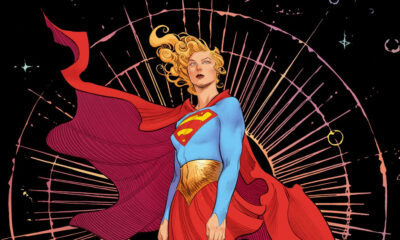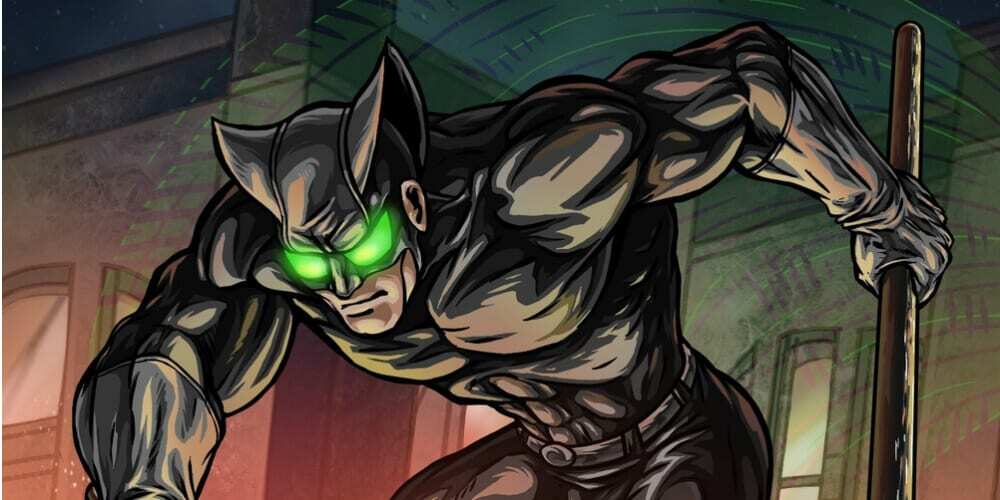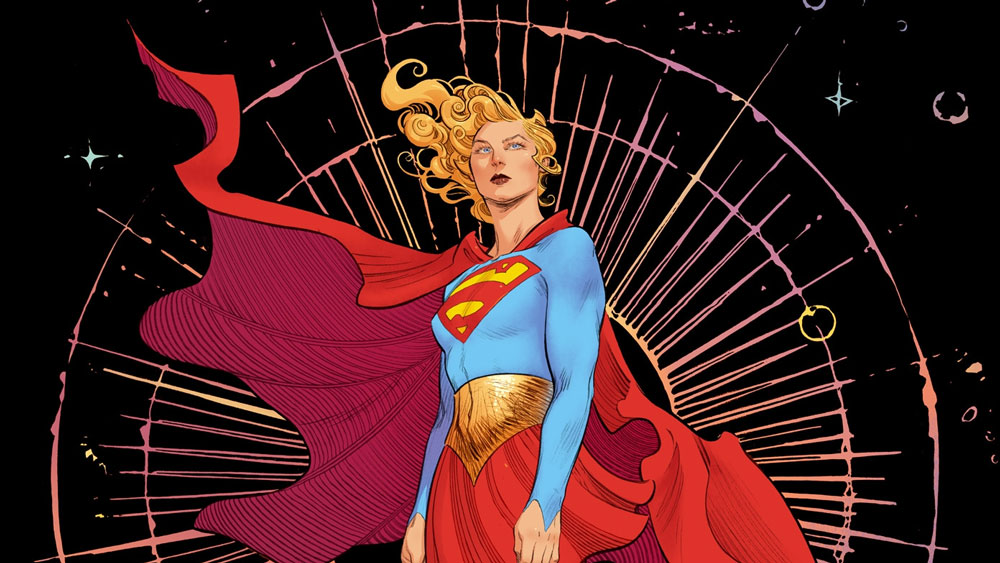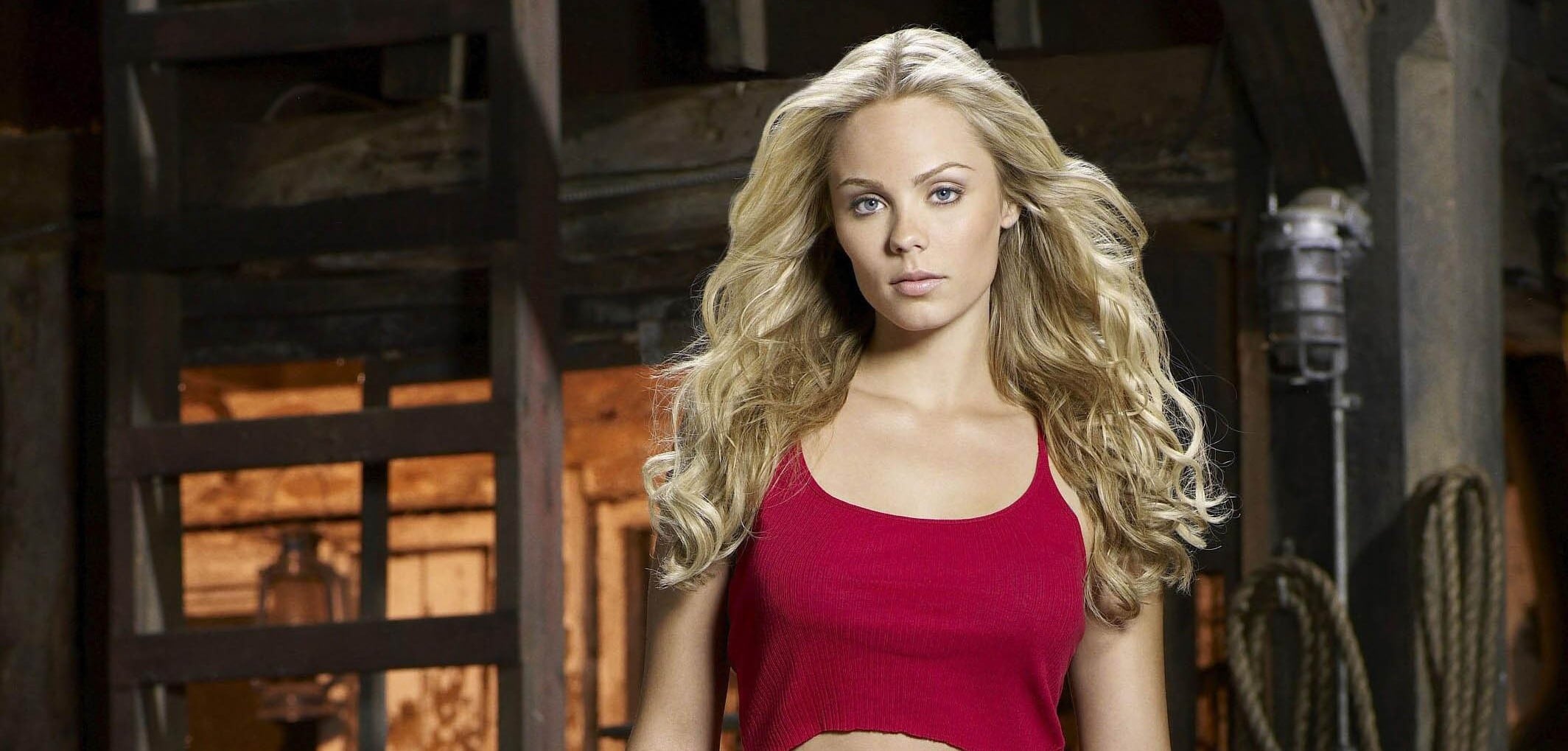Verdict: Supergirl surges back into form with a compelling and insightful new perspective on the Luthor mythos that recognises just what themes and ideas work best for this show.
Review:
Supergirl hasn’t been itself lately. It’s not as if it’s been bad since the mid-season break – all three episodes of 2017 so far have been, at the very least, enjoyable. It’s simply that the show has briefly lost sight of what works specifically for Kara Danvers’ world. We’ve had stories that could easily have been parachuted in from The Flash or Legends of Tomorrow, or even Arrow in the case of Guardian, and it’s all gravitated more towards typical superhero fodder, even if there’s always been enough potential to keep going. Luthors, then, is a relief. Not just because it’s very good, evoking the sureness and insight of the series-highlight opening run of episodes this season, but because it’s unique. It’s a Supergirl story through and through, and it couldn’t be translated to any of the other superhero shows in a way the previous episodes could with some tweaking. The Luthors may be most famous for their involvement in the Superman mythology, but this isn’t a story, either, that could be told with the Man of Steel. And despite the niggles and flaws that still crop up from time to time, all of those things are the mark of a great episode.
It’s an episode that returns to arguably the most compelling story of season two, which is Lena Luthor’s struggle to define herself outside the pervasive image of the evil and manipulative Luthors. Her last appearance told a similar story, but this one is more astutely written because it’s not focused around the ambiguity of Lena’s moral compass. We spend enough time with her throughout to understand that she’s a victim who abhors her mother’s actions, and she’s never really in any significant danger of turning out to be evil. Instead, Luthors focuses on the public perception of Lena and the cloud of prejudice and confirmation bias that surrounds her.
It’s a smartly written study of just how Lena has her identity dictated for her by others, and just how powerful a simple, morally unambiguous narrative can be. We see just about every major character, Kara excepted, give into the story peddled by Lillian that she’s a typical Luthor, and on the surface, their arguments are irrefutable, supported by concrete evidence, which would seem to put Kara in an unsympathetic and headstrong light. Yet Luthors never buys into that idea that unwavering faith in people is wrong, even when it becomes illogical and in fact, it actively supports the notion – Kara’s faith, give or take a reveal that Lena’s playing the longest game imaginable, is borne out. Meanwhile, the dialogue of the other characters is incisively written to contain small biases that creep in every now and then – how every one of their arguments comes back to ‘she’s a Luthor’, and how they seem vindicated rather than concerned about the footage seemingly confirming Lena’s criminality. The Luthor narrative is persuasive enough that, evidently, their suspicions completed, rather than formed the basis of, their accusations. By setting out Lena’s perspective throughout and hammering home the wrongness of her public condemnation, Luthors finds itself delivering a trademark compassionate Supergirl message: a plea for us to judge people for who they are, and to avoid narratives that create comforting patterns that override the difficult and contradictory truth that life never follows a logical path. Sometimes this show works best when it picks a side, like Kara Danvers, and makes the case for it as passionately as it can, and this was certainly one of those cases.
Of course, things are more complicated than that. Luthors doesn’t just adopt the stance that Lena is good and confirmation bias is bad – it’s more complex than that. Lena’s character has been predicated on the idea that she’s better-equipped than Lex to cast off her heritage because she’s only an adopted member of the family, so the reveal that she is a Luthor by blood, albeit a product of an affair, is a very clever way to muddy the waters. It’s a reveal that works on multiple levels. In a way, it balances the argument by tying Lena more explicitly to the evil actions of her family, yet it also engenders more sympathy for the character by making her plight more apparent, tightening the trap of her past to make it far more difficult for her to escape what is now her bloodline – she is at once more villainous and heroic as a result of this. Perhaps that’s what that ambiguous chess piece moment at the end means – a reminder that Lex and Lillian retain some lingering influence in her life even as she’s picked a different path, and that this capacity for evil will have to be harnessed in one way or another.
It seems like a pessimistic message for Supergirl to deliver, but it indicates a more complicated and multi-faceted attitude to Lena than the episode initially suggests. Lena started off as a compellingly conflicted character who evidently has the capacity for an uncertain range of actions, and she’s only become more layered than that as her inner conflict has become better defined. The family reveal here finally makes that struggle tangible, and clarifies her status as a character defined by duality – philanthropist and villain, friend and enemy, Luthor member and individual. To add to the thoughtful characterisation, Katie McGrath’s performance is working wonders for this sense of uneasy ambiguity. It’s just opaque enough to support the uncertainty the other characters have about her motivations, and to keep the question of her morality unanswered even beyond this episode, but filled with enough genuine likeability that you want to root for her, and believe in her gratitude towards Kara nonetheless. As long as the show doesn’t go down the path of completely committing to villainy, as the character works best in this grey area she’s left in, it’ll be fascinating to see where her character goes from here.
Furthermore, the reveal works to humanise Lillian, who had previously been an interesting character, but one made less nuanced by her commitment to her xenophobic brand of villainy. By clarifying the complicated nature of the Luthor family and her uncertain relationship with Lionel, Luthors paints a more sympathetic picture of Lillian as a well-intentioned mother driven to desperation and cruelty by actions beyond her control, that have boxed her into an obsession with the corrosive influences in her life such as Lex and pushed her away from those who could have put her on a better path, such as Lena. At the end, Luthors suggests, taking back control any way necessary, even if it’s destructive, could have been the only option that Lillian thought was available. Brenda Strong brings a sense of genuine maternal affection and sad regret to her scenes with Lena that convey the emotional nuance that her many super-villain speeches have so clearly lacked. Cadmus has been a flaky antagonist for this season, with its threat frequently receding as Supergirl has focused on other things, but Luthors managed to find the emotional realism within all the posturing and evil plotting, and the result is a much stronger foundation for whatever comes next.
With Lillian’s characterisation greatly improving, it’s frustrating that Supergirl can’t quite find an equally commanding physical threat for Kara. Luthors dips into the grogues’ gallery to bring back Metallo and Cyborg Superman, but they’re both deeply boring villains. They might have impressive super-powers that make for good action scenes (although Luthors is substantially less focused on action than most episodes), but they’re both confined to the position of brainwashed drones for Cadmus, with no motivations beyond parroting Lillian’s rhetoric. The ‘Metallo’s going to explode!’ threat provides Luthors with a ticking clock, but it’s already accrued enough urgency with the personal drama of Lena’s kidnapping and introduction into the Luthor fold – having a low-rent henchman glower a bit adds nothing to the tension of the episode. It’s a good lesson for Supergirl that villains with a personal dimension and some kind of an inner life, even ones like Livewire, fit much better than the rent-a-villains plucked out to give Kara someone to fight.
Luthors also finds an intriguing way to factor in James as Guardian without having to resort to the same arguments about vigilante morality, as the same question of trust that’s applied to Lena carries over into James’ angst about Kara’s lack of acceptance. The Guardian plotline has so often subsumed episodes when it works best as a foil for Kara’s own adventures, so the decision to only factor in James in a small subplot is a savvy one. It allows James’ exploits to meaningfully contrast the central plotline, illustrating the limits and perhaps even flaws of Kara’s unwavering faith and trust in people as her protectiveness clashes with her open-heartedness, while James’ distrust of Lena puts a consistent face to the prejudice that’s directed towards her. James has so often been written unsympathetically this season as he’s picked up the mantle of Guardian, coming across as headstrong and impulsive, but Luthors characterises him in a much more balanced way. He’s not wrong when he criticises Kara’s perceived double standard with him and Lena, but he’s too blinkered by his desire to gain her acceptance to recognise his own narrow-mindedness, which he honestly apologises for at the end of the episode. It’s a strong way to recalibrate Kara and James’ friendship, considering how their antagonism provided to be a non-starter dramatically, in a place of trust and understanding as two flawed people with good intentions that they can both recognise. I’m not confident that Supergirl can get out of the corner it’s written itself into with Guardian – the storyline looks increasingly misguided on a conceptual level – but the gentle criticism of James and more respectful dynamic of his friendship with Kara is at least a better direction to take than before.
And then there’s the Mon-El story, which appeared to be rapidly running out of gas last week with a tediously rehashed set of developments. Luthors handles their budding romance more smartly, even if it starts with an awkward scene in the bar that runs over the same character dynamics as last time. From there, though, it’s smoother sailing. Mon-El, like James, only factors into the plot when his contribution is absolutely needed, such as when he points out that he’s a living affirmation of the benefits of Kara’s wholehearted faith in people, and the stopgap with James’ assistant, Eve, is soon dispensed with insteadg of blocking narrative momentum as it threatened to do last week. Luthors initially repeats the well-worn formula of a heart-to-heart talk between the two in Kara’s apartment at the very end in an indication of a return to the same old patterns, but it manages to have its cake and eat it by committing to a major shift in their relationship as they very nearly kiss, but also delaying the gratification/horror (delete according to preference – I’m not picking sides here!) of the moment with the arrival of…
… someone named Mr Mxyzptlk (Supergirl, helping out review writers with easy to spell names weekly), who declares his love for Kara on the spot. It’s a fun and mischievous pivot into next week that already creates a hopelessly messy emotional situation for the following episode to pick up, and the hammy commitment of Peter Gadiot to his character’s theatricality promises that Supergirl will be taking this chance to loosen up a little after the intensity of this episode. Luthors isn’t without its flaws, some of which are inherited from previous episodes such as Metallo and James, but it’s an empathic return to form for Supergirl that compellingly explores the knotty ins and outs of the most famous family of bad guys in superhero fiction, restating this show’s trademark sunny optimism and faith in others while wrapping it around a story with genuine emotional stakes.
Odds & Ends
- Metallo gets plenty of screen-time, but Cyborg Superman was oddly extraneous given how much fanfare was given to his arrival last year. When you have a series regular on hand, there’s no harm in using him for back-up, but it’s proving to be a waste of one of the more noteworthy villains in the pantheon.
- Alex’s coming out to the DEO team was a really nice character moment at the top of the episode, especially because absolutely no-one reacted to it as if it were abnormal. Mon-El, meanwhile, doesn’t really seem to have the conception of rigid sexuality at all, and that’s a-okay too.
- Seeing Snapper appear for more than one scene reminded me how little we’ve seen of CatCo this year. Kara’s journalism was a promising plot point when it was introduced, and works sometimes as an expansion of her heroism, as it does here, but it’s been pushed notably to the side.
- Question – was Metallo waiting for an appropriate one-liner before attacking in court, given he could have broken cover at any time? I cannot blame him if so.
- Another side note about this season – there’s no defined Big Bad. Cadmus filled the role last half-season, but I can’t see Supergirl ramping back up to them for the finale. Those masked aliens from the winter finale and premiere are still enjoying their time in space, apparently.
- Next time: Mr.and Mrs. Myxzptlk! A Valentine’s Day episode coming fashionably late on February 20. The trailer for this one looks fantastic, so count me in for this weirder, wackier version of Supergirl.
Come talk about Supergirl on our message forum for the show!
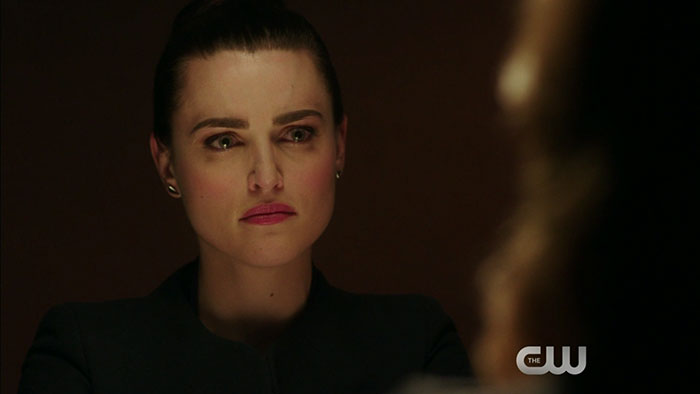

 Superman4 months ago
Superman4 months ago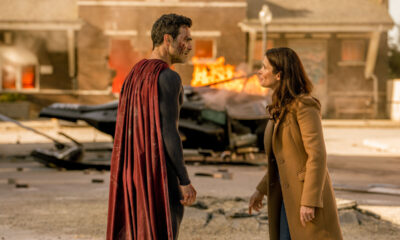
 Images5 months ago
Images5 months ago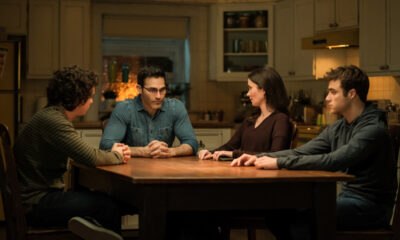
 Images5 months ago
Images5 months ago
 Images5 months ago
Images5 months ago
 Images5 months ago
Images5 months ago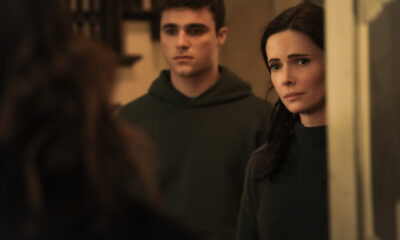
 Images6 months ago
Images6 months ago
 Images6 months ago
Images6 months ago
 Images5 months ago
Images5 months ago







